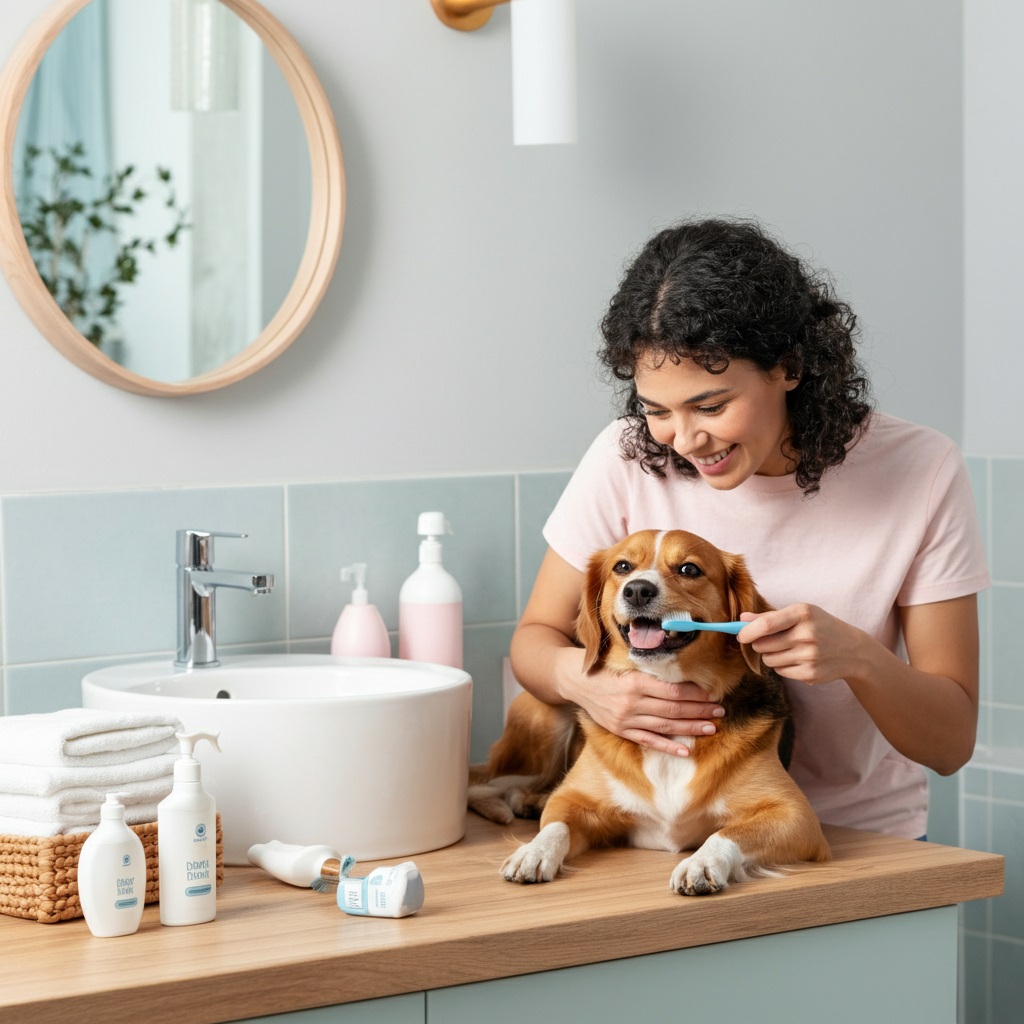
Good dental hygiene is just as important for pets as it is for humans. But how often should you brush your pet’s teeth? Is daily brushing overkill, or is it the key to keeping your furry friend healthy and happy? This blog will explore why dental care matters for pets, the benefits of brushing their teeth daily, and some practical tips to make it an easy part of your routine.
By the end, you’ll understand not only why brushing your pet’s teeth is essential but also how to make it a stress-free experience for you and your four-legged companion.
Why Dental Health Matters for Pets
Like humans, pets are susceptible to dental problems such as plaque buildup, gum disease, and bad breath. Unfortunately, pet dental issues can often go unnoticed until they become severe.
According to the American Veterinary Medical Association (AVMA), 80% of dogs and 70% of cats exhibit signs of dental disease by the age of three. Left untreated, these conditions can lead to more serious health issues like infections, pain, and even damage to organs like the heart and kidneys.
Daily brushing can dramatically reduce the risks of dental problems in pets, ensuring they stay healthy and comfortable.
What Happens If You Don’t Brush Your Pet’s Teeth?
Skipping dental care for your pet can lead to several short- and long-term health issues, including:
- Plaque and Tartar Buildup
Food particles mix with saliva and bacteria to form plaque. Over time, plaque hardens into tartar, which can only be removed by a professional cleaning.
- Gum Disease (Periodontal Disease)
Untreated plaque and tartar can lead to gum inflammation, infections, and tooth loss. Advanced gum disease can even allow bacteria to enter your pet’s bloodstream.
- Chronic Pain
Dental infections can be extremely painful, affecting your pet’s ability to eat, play, and enjoy their daily activities.
- Systemic Health Problems
Bacteria from poor oral health can enter your pet’s bloodstream, potentially affecting their heart, liver, and kidneys.
By brushing your pet’s teeth daily, you can help prevent these issues and protect their overall health.
The Benefits of Brushing Your Pet’s Teeth Daily
Daily brushing may seem like a lot of effort, but the benefits far outweigh the inconvenience. Here’s why it’s worth making this a part of your routine:
1. Prevents Dental Diseases
Regular brushing removes plaque before it hardens into tartar, reducing the risk of gum disease and tooth decay.
2. Improves Bad Breath
No one enjoys snuggling with a pet that has bad breath. Brushing your pet’s teeth keeps their breath fresh and their kisses enjoyable!
3. Extends Their Lifespan
Good oral health contributes to overall well-being, potentially extending your pet’s life by reducing the risk of systemic diseases caused by dental bacteria.
4. Saves You Money
Skipping dental care may result in costly veterinary procedures down the line. Routine brushing is a simple way to save on veterinary bills.
5. Strengthens Your Bond
Brushing your pet’s teeth can be a bonding experience. Over time, it can become a part of your daily routine that both you and your pet look forward to.
Continues after advertising
How to Brush Your Pet’s Teeth in 5 Simple Steps
Brushing your pet’s teeth doesn’t have to be a nightmare. Here’s how to get started:
1. Choose the Right Tools
- Use a pet-specific toothbrush or a soft-bristled baby toothbrush.
- Choose a pet-safe toothpaste. Never use human toothpaste; it contains ingredients like fluoride, which can be toxic to pets. Pet-friendly flavors like chicken or peanut butter make the process more enjoyable for them.
2. Get Them Acclimated
- Start by letting your pet sniff and taste the toothpaste to familiarize them with the texture and flavor.
- Gently touch their muzzle and gums to help them get used to the sensation of brushing.
3. Brush Gradually
- Lift their lip to expose their teeth and gums.
- Begin with short brushing sessions, starting from the front teeth and gradually moving to the back.
- Aim for small circular motions, focusing on the gum line where plaque typically forms.
4. Offer Rewards
- Praise your pet throughout the process and offer a treat afterward. Positive reinforcement builds trust and helps them associate brushing with a pleasant experience.
5. Be Consistent
- Brushing daily is ideal, but consistency is key. Even brushing a few times a week can make a huge difference.
Alternatives to Brushing
If daily brushing isn’t feasible, there are other ways to support your pet’s dental health:
- Dental Chews
Many dental chews are designed to reduce plaque and freshen breath. Look for products approved by the Veterinary Oral Health Council (VOHC).
- Water Additives
Dental water additives can help reduce bacteria in your pet’s mouth, though they shouldn’t replace brushing.
- Professional Cleanings
Your veterinarian can perform professional cleanings to address advanced plaque and tartar buildup. These are typically recommended at least once a year, depending on your pet’s individual needs.
Misconceptions About Brushing Your Pet’s Teeth
1. “Dogs and Cats Don’t Need Brushing in the Wild!”
It’s true that wild animals don’t have their teeth brushed, but they also wear down plaque naturally through their diet and behaviors. Domesticated pets have different lifestyles and often require additional care.
2. “Dental Chews Are Enough”
While dental chews can help, they don’t reach all areas of the mouth. Brushing provides a more thorough cleaning.
3. “It’s Too Late to Start”
It’s never too late to begin caring for your pet’s teeth. Even older pets benefit from improved oral hygiene.
Read More👉 How to Create a Pet Exercise Routine
Is Daily Brushing Right for You and Your Pet?
Daily brushing may sound daunting, but it’s one of the best ways to keep your pet healthy and happy. Start slow, be patient, and focus on making the process positive for both you and your furry friend.
If you’re unsure where to start or need additional tips, consult your veterinarian for guidance tailored to your pet’s specific needs. Your effort today can prevent discomfort, pain, and costly treatments in the future.



